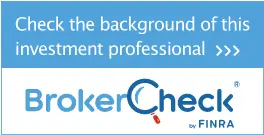MyCTSavings: What CT Employers Need to Know
The State of Connecticut has instituted a mandatory retirement savings program called MyCTSavings. MyCTSavings is not designed to replace or compete with 401(k) plans and doesn’t allow for pre-tax or employer contributions. The MyCTSavings program also carries fees. As with any type of employee benefit, there are a lot of options as an Employer when […]
DOL Crypto Risk Compliance Assistance
The DOL’s Compliance Assistance Release No. 2022-01 urges plan fiduciaries to exercise ‘extreme care’ before they consider adding a cryptocurrency option to a retirement plan’s investment menu. The goal of the compliance assistance is to protect the retirement savings of U.S. workers from extreme volatility and legal risks as retirement plan fiduciaries, considering plan investments […]
Student Loan Repayment Program
On August 17, 2018, the IRS issued private letter ruling 201833012 (the PLR). The PLR addressed an individual plan sponsor’s desire to amend their retirement plan to include a program for employees that were making student loan repayments. The form of this benefit would be an employer non-elective contribution (SLR contribution) and will be part […]
Plan Conversion in Volatile Markets
Your team has undertaken the due diligence to research various service providers. Based on a myriad of data points, experience, potential interviews of candidates, internal analysis and discussion, your team has decided it is prudent to change your plan’s recordkeeper(s). The choice of whether to proceed with a conversion during an unusually high volatile market […]
Financial Hypochondria: When Investment Vigilance Becomes a Problem
Plan Sponsors invest much time and effort in improving employee financial literacy. They offer educational content, provide opportunities for group and individual consultation, and encourage participants to approach retirement planning proactively by staying on top of their investments. But what happens when workers go overboard with well-intended advice? Today, stock market data is available 24/7 […]
The Auditors Are Coming — Are You Ready?
No one wants to be caught flat-footed when the auditors come calling. And with a new standard issued by the American Institute of Certified Public Accountants (AICPA), both the auditors and plan sponsors will be subject to new responsibilities. The AICPA’s Statement on Auditing Standards (SAS) No. 136, Forming an Opinion and Reporting on Financial […]
The Risk of 401(k) Lawsuits: It Can Happen to Them…
When a giant organization with extensive resources gets sued for alleged ERISA compliance failures — especially if the organization’s own service offerings include reviewing for such violations — that could very well be the canary in the coalmine for all other, lesser endowed firms. And that’s perhaps the key takeaway for plan sponsors in light […]
What’s the Magic Number When it Comes to Record Retention?
You don’t need to be a magician to know what records to keep and for how long. While most providers can supply reports and plan documents, the plan administrator remains ultimately responsible for retaining adequate records that support the plan document reports and filings. Refer to the chart below to know which documents you need […]
Top Ten Fiduciary Responsibilities
A plan fiduciary plays an important role in the organization’s financial health. Not only do they oversee the fiduciary process, but they identify and serve the best interests of a retirement plan’s participants and beneficiaries. Here are 10 important responsibilities to keep in mind. Limit liability: As a fiduciary, it is imperative that you understand ERISA […]
Three Tax Tips that Can Help as You Approach or Begin Retirement

Retirement is a whole new phase of life. You’ll experience many new things, and you’ll leave others behind – but what you won’t avoid is taxes. If you’ve followed the advice of retirement plan consultants, you’re probably saving in tax-advantaged retirement accounts. These types of accounts defer taxes until withdrawal, and you’ll probably withdraw funds […]
